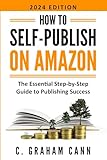The Risks You Take By Using a Distributor
Bob Kinford, owner of 2lazy4U Livestock & Literary Co. offers some first hand information on book distributors - the role they play in the book trade, and the risks a publisher takes when using one.

As we verge on the dawn of the 21st century, technology affords nearly everyone who writes the opportunity to publish their own work. Of course publishing one's own work also means that the author assumes the role of the publisher, and as such assumes the risks and responsibilities of the publisher which includes, among other things assuring distribution of their work to stores.
For the self published author to place their work into stores they must first have either a distributor or wholesaler. While there are those who despise this as an 'unnecessary evil' of the business and constantly chastise the steep discounts demanded by these middlemen, they are neither evil or unnecessary.
Without taking the big chain stores into consideration, think of the small independent book store with only 10,000 titles. If they bought even half of their inventory straight from the publisher they would have at least 2,000 accounts to take care of each month if each publisher they bought from had at least five titles the store wanted to carry. That means 2,000 checks to write, 2,000 envelopes to stuff, 2,000 stamps (at $0.32 thats $640) This does not include the extra time spent dealing with new publishers attempting to have their books carried by the store either over the phone or the added volume of mail. Even if a store wanted to buy straight from the publishers how much would their overhead increase not only from the material but extra labor? Would they be able to operate at a profit? Possibly but not probably. Just think of the added expense and labor at a super chain such as Barnes and Noble which might stock over 100,000 titles.
While the 55 to 60 percent discount distributors demand may seem steep to the publisher in reality it isn't. On a $10 book the distributor has $4.5 invested before any expenses (freight, warehouse, catalog phone bills, accountants and sales reps) are taken out. The standard bookstore discounts run from 20% (single orders) to 40% for larger orders. This would make a single book order worth $3.50 to the distributor before costs. Figuring the cost of a mailer at $0.30 and postage at around $2.60 the profit suddenly drops to $.90 (of course before the subtracting of any other costs). On the 40% discount rate the gross profit rate is only $1.50 before costs so in reality the distributor is not taking that much of the publisher's profit.
To help defray the risk, distributors include in their contracts certain methods concerning payment. First is the fact that they do not owe the publisher anything until they have been paid by the stores for the books. Often the time lapsed between payment to the distributor and from the distributor to the publisher will lapse by 60 to 90 days. Distributors will also retain the right to detain a portion of the money due to the publisher for a set amount of time. Both of these measure are for protection against the possibility that the books do not sell in the store and are returned to the distributor for full credit. If these books are not selling well in other stores they will in all likely hood be returned to the publisher at the publisher's expense. In essence the distributors are not receiving a 55 to 60% discount but providing their services for the difference between 45% of the retail price and what ever they receive for the book.
Once a publisher has their book(s) with a distributor is their risk over? No. It is just beginning. With the high overhead and low margins incurred by distributors it seems that there is at least one going bankrupt every year.
When this happens the publisher is actually at risk more than the distributor. How is this so?
The moment a distributor files for bankruptcy the bank acting as trustee locks the doors to the distributor's warehouse and all of the contents are now considered to be property of the distributor's estate. Individually, the publishers claims in these cases are small in the overall scheme of things so they are now considered secondary creditors of the estate. The trustee bank holds an auction in which all of the publisher's books are sold off with the proceeds going to pay off the primary creditors, including the costs of presiding over the bankruptcy proceedings by the trustee bank. The publishers, as secondary creditors, loose all rights over and to their books. In most cases they will receive nothing for their efforts, time and money.
Is there anything a publisher can do to protect themselves, perhaps in the wording of the contract? Yes, but as I am learning it has nothing to do with the contract itself. When Jim Skellet of Bighorn Booksellers announced on October 1 of this year that the company was filing for bankruptcy I immediately sent a letter along with a copy of my contract to First State Bank of Fort Collins, Colorado. In the letter I stated that Bighorn had not purchase the books and was selling them for a percentage.
The reply I received from Richard Gast, attorney for First State Bank stated that under Colorado's Uniform Commercial Code ('UCC') that my contract appears to be a sales or returns. A sale or return is a transaction where goods are delivered to Bighorn for re-sale but can be returned by Bighorn at a later date. Section 4-2-326 of the Colorado Revised Statues provides that the goods held by Bighorn on sale or return are subject to the claims of Bighorn's creditors, such as the bank, even though there may been an agreement where a vendor/supplier purports to reserve title until the goods are sold or uses words such as "on consignment."
The letter goes onto say that C.R.S. Section 4-9-114 of the UCC does give a supplier and person delivering goods under a consignment arrangement priority over a secured creditor, such as the bank if that supplier files a UCC Financing Statement with the Colorado Secretary of State and gives notice to the bank of that filing.
While the knowledge of this is too late to help those in the midst of the 'Little Battle of Bighorn' those of us with books at other distributors need to check into the Uniform Commercial Code of the states in which those distributor's lie. In the case of larger distributors who may have branches in more than one state it is imperative that we check the codes and file the proper forms in all states in which our books may be stored. For now that is our only course of action. However that may be changing.
On January 23, 1998 I am appearing in small claims court in Fort Collins, Colorado in an effort to reclaim the value of the unsold books which were in Bighorn's possession at the time they filed for Bankruptcy. There is a precedence set for grain farmers under section 557 of the Bankruptcy Code which allows grain farmers (referred to as 'producers') to reclaim their grain from bankrupt storage facilities providing that they can prove that they had the grain stored there in the normal course of their business. There is a similar clause for fishermen. In addition to this the tax laws are on our side as we cannot deduct the printing costs until the books are sold or disposed of as promotional material.
For those of you presently losing books in the Bighorn Bankruptcy who would like to follow my example the address of the Larimer County court is P.O. Box 800 Fort Collins, Colorado 80522-0800 The Phone number is (970) 498-7522
Anyone else losing books in this case is also invited to inform me as to the number and value of books you are losing. If the judge can see the true scope of the losses suffered in our industry by this travesty of justice the better chance I have of gaining a judgment in our favor. If I succeed it will only mean the bank will appeal the case but at least we will have a fighting chance to be protected from the failure of others.
2lazy4U Livestock & Literary Co.
Visit Bob's site, home to the only serious Cowboy & Humor Site on the Internet.
Read These Next
Booklets, Another Way to Sell Your Books
Consider turning your non-fiction book into a booklet outlining important concepts as a gateway to your full book.
What Publishers Are Doing Wrong With Their Websites
I've been working for the past two weeks updating and upgrading my list of publishers on PublishersArchive.com. I've visited literally hundreds (maybe even thousands) of websites set up by publishers to sell their books and promote their authors, and I've noticed a few things that a great many publishers are doing, or failing to do, that limits the effectiveness of their sites.
Will E-Books Topple Publishers as We Know Them?
Are the major publishing houses we love and revile about to come tumbling down, undermined by a million e-bookers? Yes, says Smashwords’ founder Mark Coker, there’s a revolution afoot. No, says Berrett-Koehler’s David Marshall, the new publishing houses will just be different and better. The odd man out, publishing consultant Peter Beren, thinks the traditional publishers will not only survive, they will probably just absorb the current e-book craze and crazies.







 Self-Publishing For Dummies (For Dummies: Learning Made Easy)
Self-Publishing For Dummies (For Dummies: Learning Made Easy) Self Publishing To Amazon KDP In 2023 - A Beginners Guide To Selling E-books, Audiobooks & Paperbacks On Amazon, Audible & Beyond
Self Publishing To Amazon KDP In 2023 - A Beginners Guide To Selling E-books, Audiobooks & Paperbacks On Amazon, Audible & Beyond Self-Publishing: The Secret Guide To Becoming A Best Seller (Self Publishing Disruption Book 2)
Self-Publishing: The Secret Guide To Becoming A Best Seller (Self Publishing Disruption Book 2) How to Self-Publish Your Book: A Complete Guide to Writing, Editing, Marketing & Selling Your Own Book
How to Self-Publish Your Book: A Complete Guide to Writing, Editing, Marketing & Selling Your Own Book Self Publishing To Amazon KDP In 2024 - A Beginners Guide To Selling E-books, Audiobooks & Paperbacks On Amazon, Audible & Beyond
Self Publishing To Amazon KDP In 2024 - A Beginners Guide To Selling E-books, Audiobooks & Paperbacks On Amazon, Audible & Beyond Write. Publish. Repeat. (The No-Luck-Required Guide to Self-Publishing Success)
Write. Publish. Repeat. (The No-Luck-Required Guide to Self-Publishing Success) How to Self-Publish on Amazon: The Essential Step-by-Step Guide to Publishing Success
How to Self-Publish on Amazon: The Essential Step-by-Step Guide to Publishing Success 14 Steps to Self-Publishing a Book
14 Steps to Self-Publishing a Book How To Self-Publish A Children's Book: Everything You Need To Know To Write, Illustrate, Publish, And Market Your Paperback And Ebook
How To Self-Publish A Children's Book: Everything You Need To Know To Write, Illustrate, Publish, And Market Your Paperback And Ebook Self-Publisher's Legal Handbook: Updated Guide to Protecting Your Rights and Wallet
Self-Publisher's Legal Handbook: Updated Guide to Protecting Your Rights and Wallet